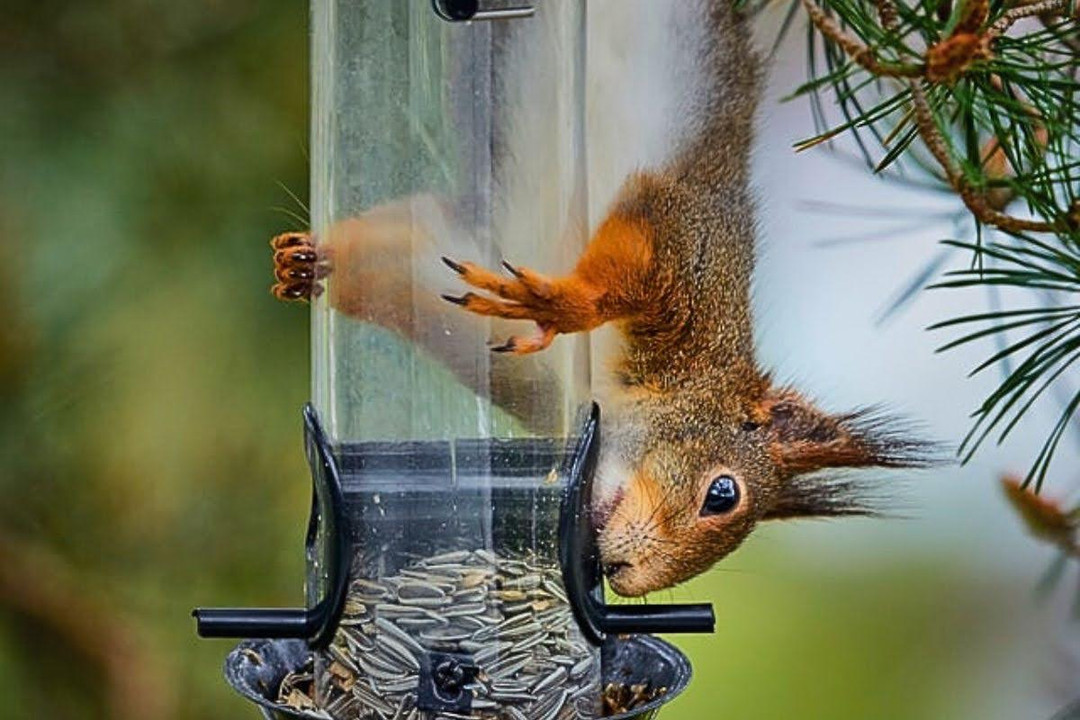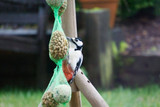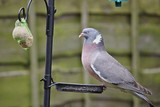5 Foolproof Ways to Rat-Proof Your Bird Feeder
Building a bird-friendly environment is a delightful endeavour, but it involves the responsibility of managing many potential issues. One major challenge involves avoiding the attraction of rats and mice to bird feeders, and how can we keep the bird feeders rat-proof?
The presence of rats may create health risks, cause structural damage, and disrupt the birding experience. Rats can steal all the bird feed, leaving nothing for the birds. Besides, once they reach your bird feeder, they will become comfortable and gradually move into your home, creating health threats for your family.
Now, is it possible to have a bird feeder while keeping rats out of your home and yard? Continue reading to find out more about rat behaviour and the best ways to keep them away from bird feeders.
Importance of maintaining a rat-free environment for bird feeding
Shielding Bird Health:
Rats can bring diseases and parasites that can be harmful to birds. When rats access bird feeders, they can contaminate the food with their droppings and urine, creating an environment that is unsafe for birds. They can hold and transmit various diseases to birds, including salmonella, tularemia, and West Nile Virus. These diseases can harm individual birds and potentially spread to other bird populations.
Preventing Bird Feeder Damage:
The gnawing and chewing habits of rats are widely recognised. They can gnaw through the construction, perches, and feeding ports of bird feeders, causing damage. As a result, the feeder has a shorter lifespan and is less effective at feeding birds.
Preserving Bird Feed:
Rats, being prolific feeders, have the capability to consume substantial amounts of bird feed. This consumption directly threatens the intended beneficiaries, the birds, and leads to resource shortages that can have several repercussions.
When rats have access to bird feed, they tend to consume it voraciously. This wastes the feed and lowers the quantity available for the birds. Birds may find insufficient food at the feeding site, potentially leading to malnutrition, decreased reproduction rates, and even a decline in local bird populations. This is particularly concerning if the feeding station was established to support specific species, such as songbirds or other native birds. One takes a proactive approach to protect the resources allocated for bird feeding by preventing rat infestations and ensuring a rat-free environment.
Maintaining Ecological Equilibrium:
Rats' predatory behaviour can disrupt the ecological balance by preying on small birds and eggs and competing for the same food sources. Preventing rat infestations is essential for protecting the safety of birds and other species. This allows birds to thrive without the disturbing influence of rodent predators, resulting in a healthier and more sustainable ecosystem.
5 foolproof methods to rat-proof bird feeders
Maintaining The Area Cleanness
- Significance of cleanliness
If you are contemplating how to feed birds without attracting rats, one of the best ways is cleanliness. Keeping a clean environment surrounding bird feeders is vital for preventing mice and rats from assembling there. These pests are tempted by the abundance of food that bird feeders provide. Hence, it is critical to limit their access to the seeds. Keep the space under the feeders clean and seed-free to make it less inviting to these rats.
- Removing And Sweeping The Fallen Seeds Regularly
To keep mice and rats away from bird feeders, collect fallen seeds from the ground regularly. Since birds are messy eaters, seeds can pile up quickly, attracting pests. A clean environment discourages pests from getting too close to the feeders, lowering the possibility of them becoming a problem. This not only eliminates any residual seeds but also debris and other potential mouse and rat attractants. Sweeping or raking the area beneath the feeders as quickly as possible can considerably limit the presence of rodent-accessible food sources.
Use Spill-Proof Feeders
When choosing bird feeders, it is recommended to look for spill-proof designs. These feeders have been designed specifically to reduce the amount of seed that drops to the ground, making them less accessible to rats.
Setting Trays To Catch Seeds
Consider putting trays beneath the feeders to prevent the seeds from falling to the ground. These trays can catch all the seeds that spill or are dropped by birds, preventing them from being easily accessible to rodents. Trays offer an extra barrier preventing mice and rats from reaching the food source.
Use Baffles
Consider installing a baffle if you want to keep rats from accessing bird feeders. There are two varieties of this device: dome baffles and tubular baffles. The former resembles an upside-down bowl and is put about halfway up the bird feeder pole. Because of its design, the rat will be unable to navigate around the barrier, stopping it from reaching your seed. Alternatively, a tubular baffle serves as a smooth, slippery drain pipe surrounding the bird feeding pole. As a result, rats are unable to grab the stand or reach the seed above, making it a rat resistant bird feeder.
Utilise Organic Rat Deterrents
There are several natural rat deterrents that you may spray or place on your feeder to prevent rats. Eucalyptus, citronella, mint leaves, balsam fir, and sagebrush are all common plant rat deterrents. These plants have a strong aroma that rats dislike, preventing them.
Rats dislike various spices, including peppermint, cayenne pepper, cloves, and chilli. The odour of them near your bird feeder will also prevent rats.
Conclusion
Keeping bird feeders rat-free is crucial for the safety of birds and our surroundings. Rats can bring diseases and damage bird feeders, affecting both birds and people. We can make sure rats stay away by using simple methods like cleaning around the feeder, using spill-proof feeders, and installing baffles. These steps help protect the bird’s food and maintain a good balance in nature. So, if you love watching and feeding birds, taking these easy steps ensures you enjoy their company without any trouble from rats.
Explore Popular Articles
-
8 Easy Ways to Attract Woodpeckers to Your Garden
8th Apr 2024Woodpeckers are among the most interesting birds known for their drumming sound and bright colours.
-
How to Protect Your Bird Feeders from Pigeons ?
28th Mar 2024You must have noticed damaged feeding ports, hanging mechanisms, perches, lids and bottoms. Who coul
-
5 Foolproof Ways to Rat-Proof Your Bird Feeder
18th Mar 2024Building a bird-friendly environment is a delightful endeavour, but it involves the responsibility o




